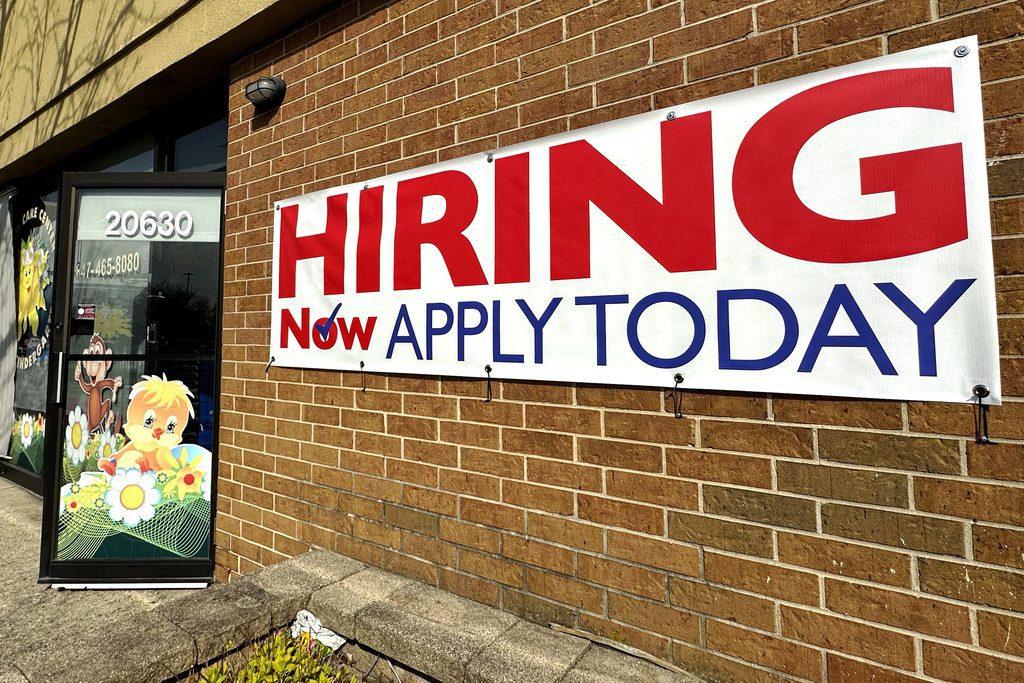
LAS VEGAS, NEVADA - MAY 07: A general view at Sunrise Hospital & Medical Center on May 07, 2020 in Las Vegas, Nevada. (Photo by Denise Truscello/WireImage)
Union representation gives workers a direct voice to management to raise their concerns, which can help ensure departments are appropriately staffed so that patients receive better care.
Last year was big for labor unionization in the US, according to Sam Shaw, the executive director of Service Employees International Union Local 1107—and the healthcare field was no exception.
The growth in union representation in that field brings multiple positives for both workers and patients, according to Shaw and healthcare experts.
“You’re seeing a groundswell of union organizing, which is exciting,” Shaw said, “but at the same time, it speaks to some of the bigger issues that are happening at work.”
The pro-worker trend continued into 2024, with the state’s new $16 minimum wage for unionized homecare workers that passed in last year’s legislative session going into effect on Jan. 1. Workers in Sunrise Hospital also voted to unionize later in the month.
Regina Brown-Ross, who takes care of two senior clients and two neurodiverse clients, said the new minimum wage negotiated by SEIU and state legislators relieved a lot of the day-to-day pressures that she and her colleagues felt from living paycheck-to-paycheck.
“It means freedom for me. And it means that I can breathe, you know,” Brown-Ross said about the increased wage. “Maybe I can let go of that second job. I don’t have to borrow from my family, I can spend more time with my family. I don’t have to struggle from paycheck to paycheck, you know?”
Workers at Sunrise Hospital in Las Vegas are hoping for similar benefits to what the union negotiated for homecare workers this year. The hospital’s workers voted to unionize by a 78% margin of victory in January, according to SEIU Local 1107.
Kalani Kauwe, a formerly non-union physical therapist who’s worked at Sunrise Hospital for 10 years, said that he was able to see pay discrepancies between himself and his union-represented colleagues before the vote.
“Because we worked side by side with union-represented coworkers and colleagues, we’ve seen the differences throughout the years,” Kauwe said. “And the gap between how they were treated and how we’ve been treated was growing in recent years.”
While the workers are still negotiating a contract with hospital management, Kauwe said he is excited to move forward in the bargaining process and noted the morale among his coworkers has improved since the vote.
Dr. Soumya Upadhyay, a professor of public health at UNLV, said unions generally form when workers feel their needs are not being met at work.
“The first need in this world as a human being comes into existence is to become safe and secure. So when we join the job and we will get a job and start working in a place, we want to feel safe and secure,” Upadhyay said. “A union provides that security to the employees.”
Kurt Houser, a lecturer on hospital administration and policy at UNLV, said the most turnover he’s seen in the medical field is when workers feel disrespected by management.
“I’m gonna’ argue that pay isn’t as important to a worker who’s been there a long time as a good leader,” Houser said. “I think if managers and supervisors treat their employees with dignity and respect, you’re not going to lose a good employee for $1 an hour or more across the street to your competitors.”
Shaw echoed Houser’s argument, saying that healthcare employees normally do not want to go find work elsewhere.
“I mean hospital workers can go find work at other places, but they really love the work they do, they love working for their employer,” Shaw said. “They just want to make sure that they’re treated equally and with respect.”
When workers feel like their needs are being met, they are more productive at work, according to Upadhyay. In the healthcare field, that leads to better outcomes for patients.
And the benefits for patients provided by unionized healthcare workers go beyond individual workers increasing productivity, according to Shaw and Houser.
Union representation gives workers a direct voice to management to raise their concerns, which Houser said can help management more effectively solve problems at the hospitals, and helps make staff feel valued. Valued employees and more consistent pay and raises both help retain workers, according to Shaw and Houser.
Kauwe and Houser said retaining workers for long periods of time at the same hospital also produces better outcomes for patients.
“We have multiple ICUs that really focus on very specific diagnoses and needs. Having consistent, trained and qualified individuals who stay for longer tenures here really translates over to greater efficiency, greater continuity of care, and greater communication, as you build rapport with the relationships,” Kauwe said about Sunrise hospital. “When we have that consistency of a good contract, that continuity of care is definitely elevated, and that’s so critical in tending to the needs of these high acuity patients.”
Unionized hospitals also often have mechanisms to make sure that departments are appropriately staffed, usually through language in contracts or in union committees that work with management.
“Staffing ratios for a medical surgical ward might be one nurse every six patients, and maybe the hospital’s now one to seven, one to eight,” Houser said. “Whether it’s cost cutting, whether it’s hiring, or whatever it is, the union steps in and says, ‘Hey we’re not really optimizing our patient care, because we’re outside the standard.’ That’s where it’s beneficial for those negotiations to take place.”
Shaw said many contracts additionally make sure that healthcare workers are properly trained and onboarded after they’re hired to make sure they can effectively help patients soon after starting their new jobs.
While unionized hospitals bring multiple benefits to patients, Houser and Upadhyay said they can potentially present drawbacks to hospital management and newer employees.
Houser said that while union contracts present consistent and clear plans for wages and pay raises, they also limit management’s flexibility to hire workers at higher wages or give bigger raises. He said the contracts can also relegate less experienced workers to less desirable, but still important shifts, like overnights and weekends.
But regardless of the drawbacks, Houser and Upadhyay said that unionization is an overall good in the healthcare field for everyone involved as long as all parties are acting in good faith and treating one another with mutual respect.
“It’s a mutual respect between the bargaining unit and in the leadership team that can negotiate good outcomes for the staff,” Houser said, “which leads to good outcomes for patients.”
Politics

Biden makes 4 million more workers eligible for overtime pay
The Biden administration announced a new rule Tuesday to expand overtime pay for around 4 million lower-paid salaried employees nationwide. The...

Biden administration bans noncompete clauses for workers
The Federal Trade Commission (FTC) voted on Tuesday to ban noncompete agreements—those pesky clauses that employers often force their workers to...

‘Like a weight of rocks has been lifted off my back:’ Nevada teacher thanks Biden for erasing student debt
As the Biden-Harris campaign seeks to court educators, one Las Vegas teacher says she had $60,000 in loans forgiven by the president’s executive...
Local News

Instalan en Washington, D.C. a Nora Aguirre como presidenta nacional de NAHREP
La corredora de bienes raíces de Las Vegas, Nora Aguirre, tomó posesión como presidenta nacional de NAHREP. La experimentada líder de “realtors” de...

La Vecindad Cantina holds a ribbon cutting ceremony for its new location
Community members and dignitaries celebrated the grand opening of a new locally-owned Mexican cantina on Thursday, Mar. 14, 2024. La Vecindad...





